Skin care for immobile adults: Overview
As we get older, our skin gets thinner and drier, so it is easier to damage. The chance of skin damage is higher for people who can't move much, or who spend most of their time in bed or in a wheelchair. The skin can develop rashes and sores, especially pressure injuries (also called pressure sores). These injuries are caused by constant pressure, which can limit the blood supply to the skin.
Skin also can be damaged by sweat, feces, or urine, making pressure injuries more likely and harder to heal.
You can help protect the skin of the person you're caring for by checking it every day and by being careful when cleaning it.
Thin Skin in Older Adults
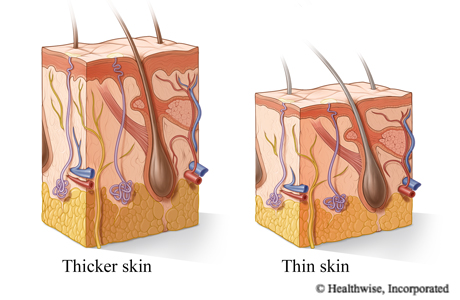
The skin of younger adults is thick. As people get older, the skin gets thinner. It's easier for the skin to tear. This means an increased chance of injury, such as pressure injuries. Older adults also can be more sensitive to cold because of thinner skin.
How to watch for skin problems in immobile adults
Check the person's skin every day. It's easiest to do this when you help the person bathe and dress. Let the person know why you're checking the skin.
Keep their body covered except for the area you are checking. This will help them stay warm and also may help them feel more comfortable.
- Look for pressure injuries, especially around bony areas.
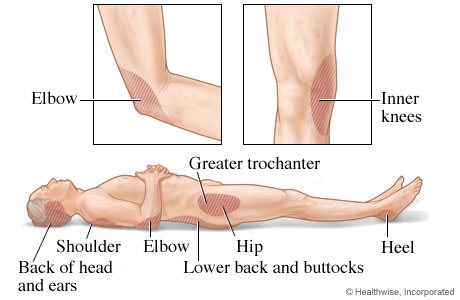
The most common places for pressure injuries are the back of the head and ears, the shoulders, the elbows, the lower back and buttocks, and the hips. Pressure injuries also can form on the inner knees and the heels.
When a pressure injury forms, the skin temperature can be different than nearby skin. It might be warmer or cooler. The skin can also feel either firmer or softer than the rest of the skin.
- Check for rashes in skin folds and creases.
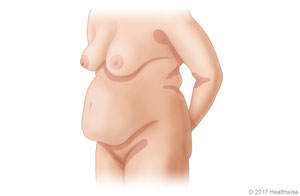
Rashes can develop in folds of skin on the torso, and in the creases of the armpits, elbows, and groin.
- Watch for rashes around the knees, ankles, and toes.
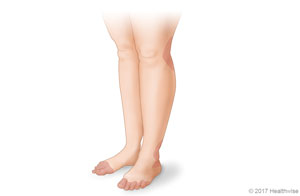
Rashes can develop in the creases around the knees and ankles and in between the toes.
- Check for rashes in the groin and anal areas.
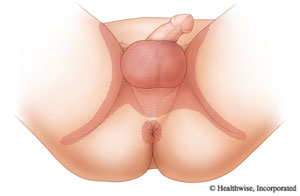
Rashes can also develop around the genitals and anus and in the creases where the legs join the body.
- Watch for problems from thinning skin.
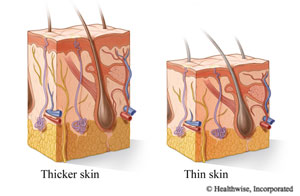
As people get older, the skin gets thinner. It's easier for the skin to tear. This means an increased chance of injury, such as pressure injuries. Older adults also can be more sensitive to cold because of thinner skin.
©2011-2026 Healthwise, Incorporated
